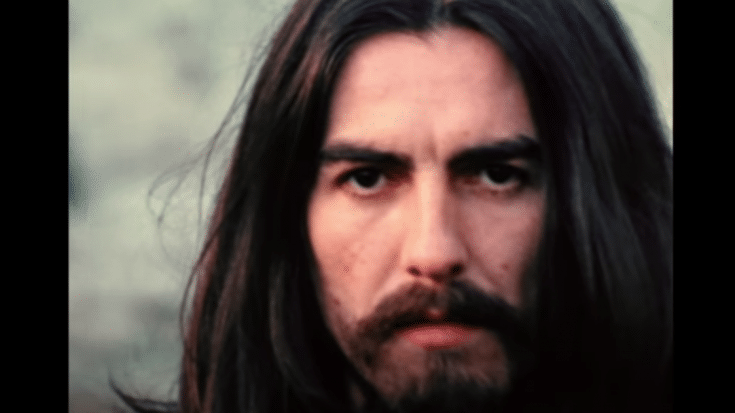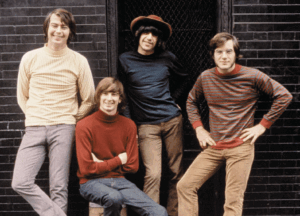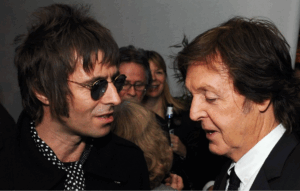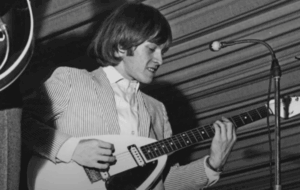The Darker Side Of 1960s Music Scene

via The Beatles/YouTube
While the ’60s brought about positive social change, it was also a time of great turmoil. The Vietnam War cast a long shadow over the decade, dividing nations and leaving a trail of destruction. The assassinations of Martin Luther King, Jr. and President John F. Kennedy sent shockwaves through society, shattering the dreams of a generation. The music of the era, fueled by this dichotomy, reflected both the hope and the darkness of the times.
Payola Scandal: A DJ’s Downfall
In the late 1950s, payola investigations shook the music industry, leading to the criminalization of the practice in 1960. Notable DJs like Dick Clark and Alan Freed faced scrutiny for their alleged involvement. While Clark maintained his innocence and retained public favor, Freed’s defiance led to his downfall, culminating in charges of commercial bribery and a tragic demise.
Teenage Tragedy Songs: A Morbid Fascination
Emerging as a peculiar subgenre, teenage tragedy songs captivated listeners with their catchy tunes and dark narratives. These cautionary tales, influenced by murder ballads, warned against the consequences of reckless behavior. Despite their morbid themes, these songs served as poignant reminders of the dangers of temptation and poor choices.
Female Musicians and Sexual Revolution
Female musicians of the 1960s embraced themes of independence and desire, challenging traditional gender roles. Despite facing backlash, they continued to assert their sexuality through iconic songs like “You Don’t Own Me” and “Heat Wave.” While societal double standards persisted, these artists paved the way for future generations, empowering women in the music industry.
Sam Cooke’s Mysterious Death
The unresolved circumstances surrounding Sam Cooke’s death continue to spark speculation and intrigue. Conflicting accounts and suspicious injuries fuel alternative theories, leaving doubts despite the official ruling of justifiable homicide. Cooke’s tragic end remains a haunting reminder of the complexities of fame and the shadows that lurk behind the glitz and glamour of the music industry.
Censorship Battles: Artists vs. Authorities
The 1960s saw artists pushing boundaries, challenging societal norms, and clashing with censorship efforts by government agencies. The FCC and BBC sought to regulate songs deemed explicit or obscene, sparking debates about freedom of expression. Despite these challenges, musicians persisted, advocating for artistic freedom amidst the ever-evolving landscape of cultural and political change.
Beatles vs. Religion: A Clash of Ideals
John Lennon’s infamous remark about The Beatles being “more popular than Jesus” ignited a firestorm of controversy. Fundamentalist Christians condemned the band, leading to boycotts and death threats. The incident highlighted the complexities of blending music, fame, and religious sensitivities in an increasingly interconnected world.
Authenticity Debate: Redefining Musical Norms
The 1960s witnessed heated debates about authenticity in music, with artists challenging established norms. Bob Dylan’s transition to electric guitar and The Monkees’ manufactured image intensified these discussions. The era underscored the evolving dynamics of the music industry and the ongoing quest to define what it means to be an authentic artist.
Plane Crashes: Tragedy in the Skies
Several plane crashes in the 1960s claimed the lives of talented musicians, leaving a profound impact on the music world. From the “Day the Music Died” incident to losses like Patsy Cline and Otis Redding, these tragedies serve as sobering reminders of the risks musicians face. Despite their untimely deaths, their contributions continue to resonate, shaping the course of music history.
Joe Meek: Innovation and Tragedy
Renowned for his innovative contributions to music, Joe Meek’s personal struggles cast a dark shadow over his legacy. His descent into paranoia and violence, exacerbated by societal attitudes towards homosexuality and mental health, ended in a shocking act of violence. Meek’s story highlights the importance of compassion and support for individuals battling mental health issues in the music industry.
Rock’s White Dominance: A Complex Reality
Despite its roots in Black culture, rock music of the 1960s became predominantly dominated by white artists. This phenomenon reflects systemic racism and industry dynamics, raising questions about representation and inclusion. Acknowledging the contributions of iconic musicians, it’s crucial to address the marginalization of Black artists and women in the genre for a more equitable future.
Manson Murders: A Dark Intersection
Charles Manson’s connection to the rock counterculture exposed a disturbing undercurrent within the music scene. His twisted ideology and delusional interpretation of lyrics led to brutal murders, tarnishing the image of rock counterculture. Manson’s tragic impact serves as a stark reminder of the dangers lurking beneath the surface of artistic expression and rebellion.
Woodstock: Chaos Amidst Unity
Woodstock, despite its logistical challenges, remains a transformative cultural moment in music history. The festival’s chaotic organization tested its organizers’ capabilities but ultimately fostered unity and peace amidst adversity. Its enduring legacy as a symbol of music, peace, and love perseveres despite the logistical nightmares it faced.
Concert Hazards: The Dark Side of Music
The 1960s witnessed a rise in hazards associated with attending concerts, shattering the illusion of harmony and safety. Incidents like the Ottawa Riot and the Altamont Free Festival tragedy underscored the volatile nature of concert venues. These events serve as sobering reminders of the challenges faced by both artists and fans during a transformative period in music history.
Substance Abuse: A Tragic Toll
Substance abuse pervaded the 1960s music scene, taking a devastating toll on many musicians. Despite its association with creativity and enlightenment, rampant drug use led to shattered careers and untimely deaths. The tragedies of icons like Jimi Hendrix and Janis Joplin highlight the dark side of the era’s counterculture, sparking changes in attitudes toward health and well-being in the music industry.



















